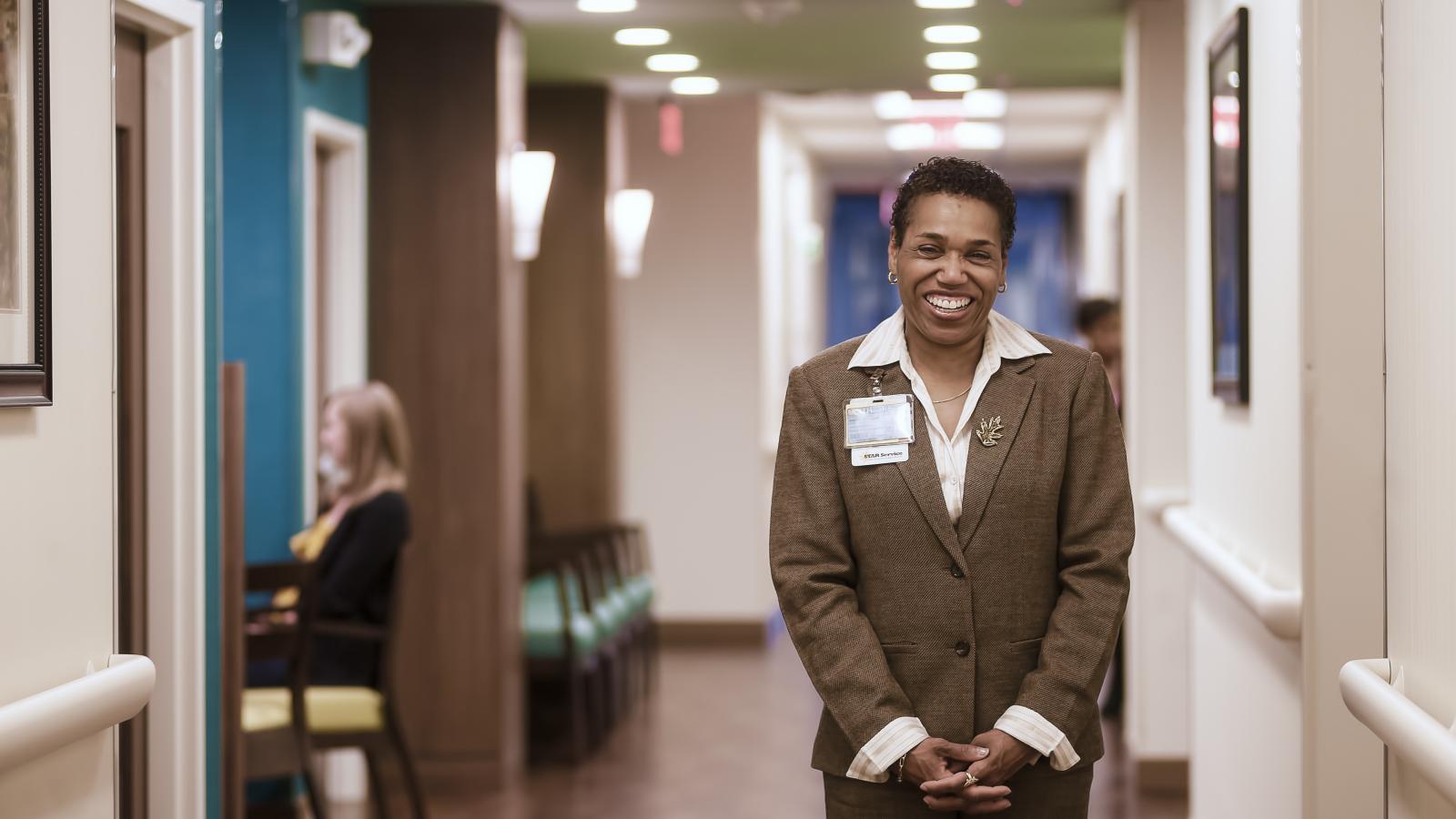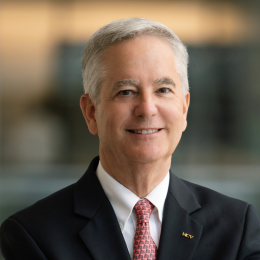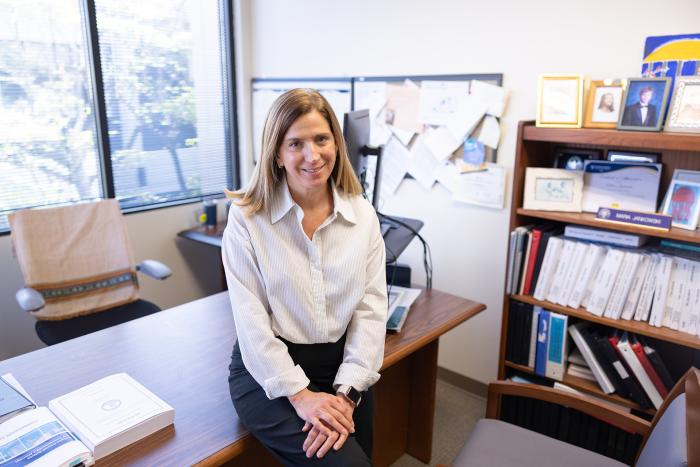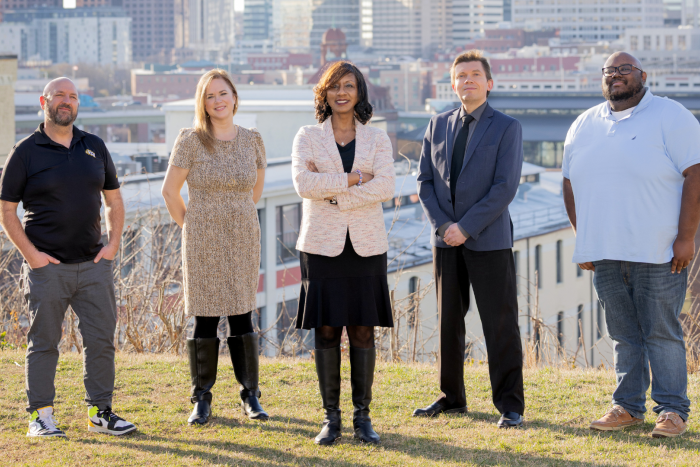
Trustee's Corner: Sheryl Garland
Sheryl Garland has worked at VCU Health for more than 30 years. She serves as chief of health impact at the health system and has served since 2016 on the MCV Foundation Board of Trustees, making key contributions on the Personnel and Compensation and the Finance and Audit committees.
One of her achievements at VCU Health of which she is most proud is the Virginia Coordinated Care Program, which took nearly three years to build before launching in 2000. For 19 years, the program connected uninsured patients with primary care resources in their communities so those patients would have a medical home and not need to seek care in emergency rooms. Among participants, emergency department visits dropped by 52 percent over the program’s lifespan, while inpatient admissions dropped by 49 percent. The program ended in 2019 following the state’s expansion of Medicaid.
At VCU Health, Sheryl has served as vice president for health policy and community relations, director of community outreach for the VCU Institute for Women’s Health, administrative director of the VCU Center on Health Disparities, and director of the VCU Office of Health Innovation.
As chief of health impact, what is your role at VCU Health?
It’s a very unique role. I have not personally met anyone else with this title yet, so it’s a great conversation piece among my colleagues. About four years ago I was asked to focus our health system’s initiatives around building programs and partnerships to look at ways we could improve the health of communities we serve.
There is no question that VCU Health and our partners across the university are focused on providing high-quality and safe care for all patients in the region and state, but what we don’t spend enough time talking about is the role our organization plays in improving the overall health of the communities we touch across all of Virginia.
We can’t do it by ourselves because many issues go beyond clinical or medical care. It’s important for us to think about our patients, the populations we serve and the communities they live in, in a more holistic way.
Can you share examples of partnerships that help address patients or communities in a holistic way?
VCU Health does not build houses or own apartments, but we realize housing is a major issue for many of our patients. We have developed very intentional partnerships with organizations such as Homeward and Virginia Supportive Housing so we can connect people who don’t have stable housing with resources in the community.
We also have a longstanding partnership with the Medical Respite, which is run by the Daily Planet Health Services. For up to 45 days, they provide a place to recuperate for people who are discharged from the hospital but have unstable housing. We have negotiated to have beds designated for our patients at that facility because we acknowledge if patients don’t have anywhere to recuperate, they’re likely to end up back in the hospital.
After 30 years on campus, what continues to motivate you each morning?
It’s very interesting, because for 32 years the answer has been the same: There are people who need help. While I don’t deliver care, I have the opportunity to work with incredible teams to develop new ways of providing support to our patients. We find new processes that make it easier for patients to access the services they need. We find new and innovative opportunities to work with community partners to help people be as healthy as they can be. We remove barriers so patients can achieve the health outcomes that we wish for them when they are discharged from our hospital, leave our Emergency Department or receive care in our clinics.
That’s what keeps me coming back and keeps me excited. VCU Health is an organization that believes in continuous quality improvement, and until we get it perfect on all fronts, there’s a need to keep coming back.
Are there any proud moments in your time on the MCV Campus you’d like to share?
My father is from Church Hill. When he was a little boy, his mom would pack a lunch for them to come to the A.D. Williams Clinic here on campus. It was one of the only clinics where African Americans could receive care.
Patients would come in and sign their names on a list, and they had to get there early in the morning and hope to be called before noon. If not, the clinics would go to lunch and patients would go out in the A.D. Williams Clinic courtyard to eat. After lunch, they would go back in, wait, and hope that they were called before clinics closed at the end of the day. My dad shared that he never wanted that kind of experience for his family if he ever had insurance. So, I never came here for care as a child.
When I became director over our clinics in the early ’90s, I was shocked when the operations director explained the details of what was, 50 years later, the same appointment scheduling system. The first thing I asked the operations team to do was implement an appointment scheduling system that was patient-centered, respected people‘s time, gave them the opportunity to choose when to come for their appointments, and shared clearer ideas about when they might be seen.
As soon as the new system was implemented, I called my father and said, “I just want to let you know that we’ve put in an appointment scheduling system. I just want you to know it’s done.”
His response was, “Thank you. Thank you on behalf of a lot of people.”
When I think about my accomplishments, as little as that change was, all I can think about are the generations of people who lived with that previous system. It was just a simple change in a process that I think has made a huge difference in a lot of people’s lives.
If you would like to support VCU Health's efforts to ensure all patients have access to the best available care regardless of their ability to pay, please contact Brian Thomas, vice president and chief development officer at the foundation, to learn about opportunities for supporting health equity programs and initiatives on the MCV Campus.



